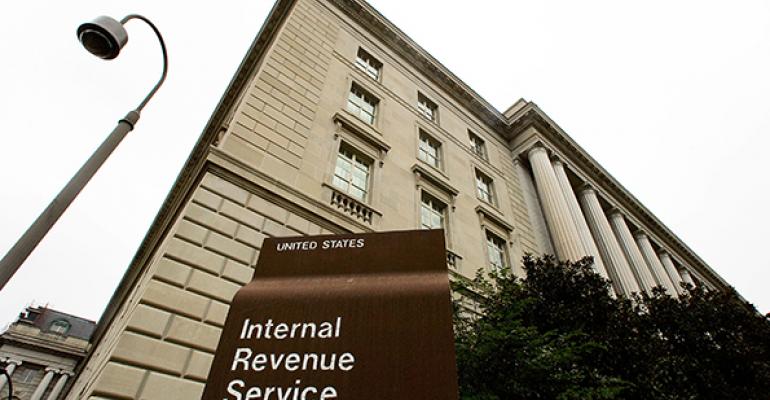The Internal Revenue Service quietly made a significant change to their procedures regarding estate tax returns. With an unannounced June 16 update to the Frequently Asked Questions on Estate Taxes on its website,[1] the IRS revealed that the issuance of a closing letter after the filing of a Form 706, Estate (and Generation-Skipping Transfer Tax) Return will no longer be automatic. Instead, taxpayers must formally request a closing letter from the IRS.
A closing letter is meant to evidence that the IRS has accepted a filing and the federal tax liabilities are satisfied, allowing the executor of the estate to close out the estate administration process. In most cases, the IRS won’t reopen a case when a closing letter has been issued except in certain extreme circumstances, such as fraud, substantial error by the IRS or when a failure to reopen would be a serious administrative omission.[2]
Returns Filed Prior to June 1, 2015
For estates that filed an Estate Tax Return prior to June 1, 2015, there’s no change from the previous procedures. These estates should receive a closing letter without the need for a formal request. The Frequently Asked Questions prior to the June 16 update stated that these taxpayers should expect to receive a closing letter within four to six months after filing Form 706. However, in practice, taxpayers have generally received closing letters on a less timely basis following the submission of the Form 706. The IRS’ Frequently Asked Questions didn’t previously address which estates would receive a closing letter.
Returns Filed on or After June 1, 2015
Although the new procedure wasn’t issued until June 16h, it will apply to estate tax returns filed on or after June 1, 2015. The new IRS guidance states the IRS will only issue closing letter following a request by the taxpayer. The IRS asks that taxpayers wait at least four months after filing the return to make a request but doesn’t offer any guidance on how to make a request or the form a request should take. The Frequently Asked Questions website directs those with questions about requests to call an IRS helpline. However, in calling the helpline, it was revealed that no formal procedures have been established so there’s little that they can say at this time. Presumably, practitioners can expect the IRS to release formal procedures prior to Oct. 1, 2015 when taxpayers who filed Estate Tax Returns on June 1, 2015 can begin requesting closing letters. Some in the field are already advocating that a check-the-box request be added to the Form 706, making it easier for practitioners to complete this additional step imposed by the IRS.
When Closing Letters Will be Issued
The updated Frequently Asked Questions website also added a helpful guide detailing in which cases the IRS will and won’t issue a closing letter. Specifically, the IRS won’t issue closing letters in cases in which: (1) the estate didn’t meet the filing threshold, and the portability election was denied due to a late filing or (2) the return was filed pursuant to Rev. Proc. 2014-18, and the portability election was denied due to failure to meet the requirements of the procedure. In all other cases, the IRS has indicted it will issue a closing letter on request.
Reason for Change
Practitioners will rightfully wonder—why is the IRS making this change that creates another step in the estate tax reporting process? In a June 23 statement, the IRS claims that the number of returns filed has increased dramatically, as many estates are filing for the sole purpose of making a portability election. While the strains of additional workload on the IRS’ resources are understandable, the method of addressing this problem is akin to cracking a nut with a sledgehammer. It’s true that estates that owe no estate taxes are now more frequently filing returns for the purpose of making a portability election and that issuing a closing letter would use IRS resources. It’s also true that a closing letter will have limited use given that the Internal Revenue Code and Treasury Regulations allow the IRS to examine the return of the first spouse to die even after the statute of limitations has run on that return for purposes of determining the amount of ported exemption for the surviving spouse.[3]
However, with estates that are filing for reasons other than portability, these closing letters are often required as part of the settlement of the estate. At the very least, executors of such estates rely on these closing letters as an indication that the federal transfer tax liability has been satisfied and that the estate can make distributions and be closed. To make these estates formally request a closing letter seems to only add another step and cost in the process for the estate without any ascertainable benefit to the IRS.
Await Further Instructions
Without the release of formal procedures, practitioners can do little more than identify the returns subject to this new procedure, calendar four months from the filing date if a closing letter is desired and await further instructions from the IRS.
Endnotes
[1] Frequently Asked Questions on Estate Taxes, IRS.gov, http://www.irs.gov/Businesses/Small-Businesses-&-Self-Employed/Frequently-Asked-Questions-on-Estate-Taxes#1 (last updated June 16, 2015).
[2] Revenue Procedure 2005-32, 2005-23 I.R.B. 1206.
[3] Internal Revenue Code Section 2010(c)(5)(B); Treasury Regulations Section 20.2010-2(d).

